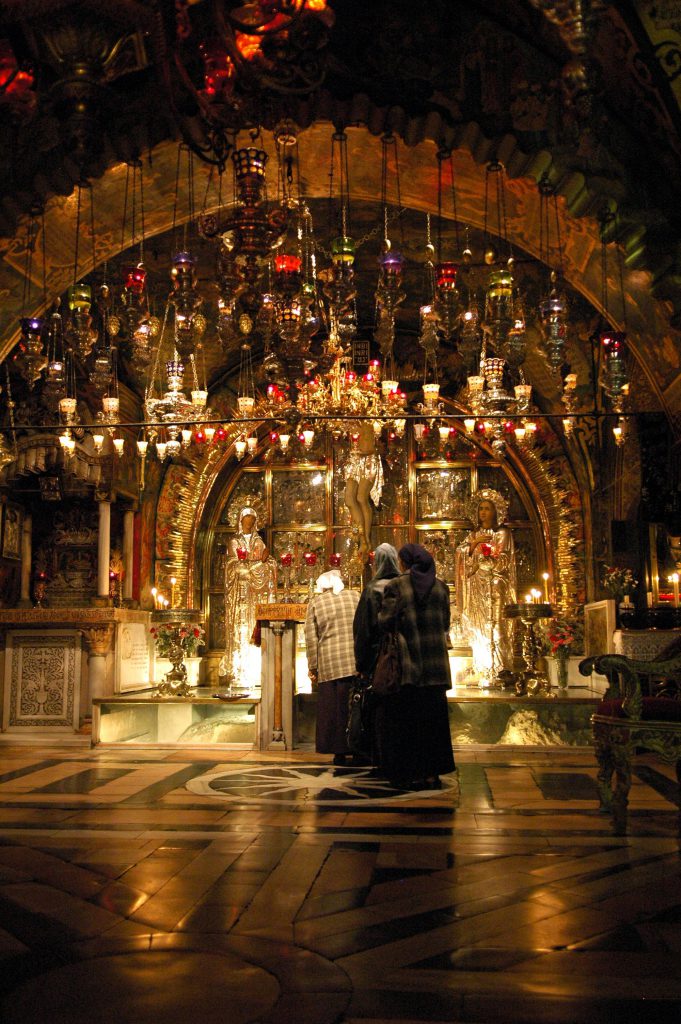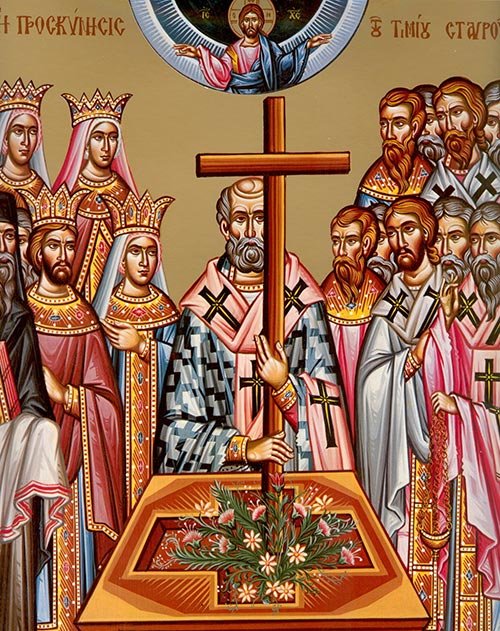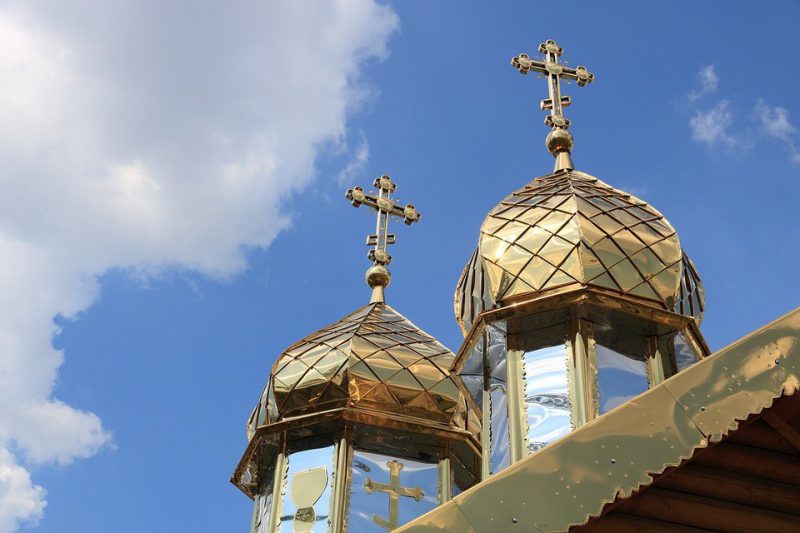On the Third Sunday of Great Lent, we venerate the Holy Cross of our Lord and God and Savior Jesus Christ. This veneration of the cross helps prepare us for the coming of the Crucifixion, while at the same time invigorating us to finish the Great Fast with strength. And perhaps most importantly, it reminds us that “he who does not take up his cross and follow Me is not worthy of Me” (Matthew 10:38). In this post, we explore the true meaning of the Cross for us as Orthodox Christians.
6 minutes
What is so special about the Cross?
St. John Chrysostom, a fourth century Patriarch of Constantinople, describes the Cross this way: “The Cross is the proof of the love of God. The Cross is the unshaken wall, the unconquered weapon, the Kingdom of virtue. It has torn asunder our mortgage and rendered useless the prison of death. The Cross has opened Paradise, it has admitted the thief and has guided the human race from impending disaster to the Kingdom of God.”
Read More: The Sign Of The Cross In Orthodox Tradition
Our Lord’s Cross reminds us of His Passion. By presenting to us His example, it encourages us to follow Him in struggle and sacrifice, being refreshed, assured, and comforted. The Cross teaches us that through pain and suffering, we shall see the fulfillment of our hopes: the heavenly inheritance and eternal glory.

Our Lord Jesus Christ changed everything through His Crucifixion on the Cross. He very well could have avoided His own death and destroyed those who sought to kill Him. But He didn’t. Because He loved them just as He loves every single one of us. Because He desires for us to be saved! When Christ died on the cross, He defeated our enemies—sin, death, and Satan. Now we can become like Him and enjoy the communion with Him that we lost after the Fall.
This is why we bow before the cross and put it at the center of everything in our lives. God took an instrument of evil and death, and transformed it into a symbol of victory and life.
Icon of the Feast
The icon for this Feast is the same as that of the Veneration of the Cross celebrated on September 14th (see below). In this icon, Patriarch Macarius I stands in the pulpit elevating the Cross for all to see and venerate. We see many clergy and laypeople surrounding the Cross, including Saint Helen, the mother of Emperor Constantine.
Read On: Why Orthodox Christians Venerate Relics

“Take up your cross and follow Me”
In the Gospel lesson for this Sunday, Jesus says, “If anyone would come after Me, let him deny himself and take up his cross and follow Me” (Mark 8:34). But what does it mean to deny ourselves? What does it mean to “take up your cross”? The original Greek word translated as deny in this passage is aparnisastho, absolute rejection. This means renouncing everything in our lives that would prevent us from attaining salvation. Christ-like self-denial goes much deeper than many of us realize. It penetrates the façade which hides our hidden sins, our shortcomings and our faults.
However, absolute rejection doesn’t mean depriving ourselves the things we need to live, nor does it mean we lose our individuality, personality and identity. When Jesus speaks of denying ourselves, He means we must subordinate our will to the will of God. “Take up your cross and follow Me” means to begin the journey to salvation. It means subduing our anger, insensitivity, impatience, and childishness, and mastering them, rather than allowing them to control us. In short, it means becoming like Christ. That is the call He gives us; this is what it means to truly be a Christian.
Sermon from +Father Thomas Hopko
In this edifying homily, +Father Thomas Hopko of blessed memory helps explain what it means to truly deny ourselves, take up our cross, and follow Christ.
The half-way point: We are almost there!
When running a marathon, hearing you are halfway to the end can really be inspiring. It can fill you with hope that you’re almost there, that there isn’t much farther, and you will have crossed the finish line. So it is with Great Lent. The Church wisely gives us this Third Sunday – halfway to Golgotha – to refresh ourselves spiritually in Christ, to assess our Lenten journey and continue with greater determination.
But the initiative is still ours. Just as you cannot enter spring without having first endured the winter, so too we cannot achieve eternal life with God if we do not deny ourselves and follow Christ. If we want to share in the joy of His resurrection, of His victory over death, we must first participate in the struggle, pain, and sacrifice of crucifixion. We must crucify the habits of thought, word, and deed that lead us to worship and serve ourselves instead of God and neighbor. We must kill our pride, our selfishness, and our slavery to pleasure. If we don’t crucify these passions, our souls will be too sick, dark, and weak to share in the glory of the Resurrection.
Conclusion
No matter what we may think at times, our Savior is no stranger to temptation, suffering, pain, and death. He sympathizes with our struggles because He endured them. So as we begin the second half of Lent, let us keep our eyes on the prize, looking to the great trophy of our Savior’s victory over sin and death, the cross, through which joy has come into all the world. Let us offer our lives in free obedience to the Father, accepting whatever He wills. And no matter what burdens we may bear, no matter our frustrations and failures, let us press on the joy of Pascha. Let us deny ourselves, take up our crosses, and follow Him. For this alone is the way to the brilliant light and eternal blessedness of the Kingdom of God.
Keep Reading: How And When To Make The Sign Of The Cross

